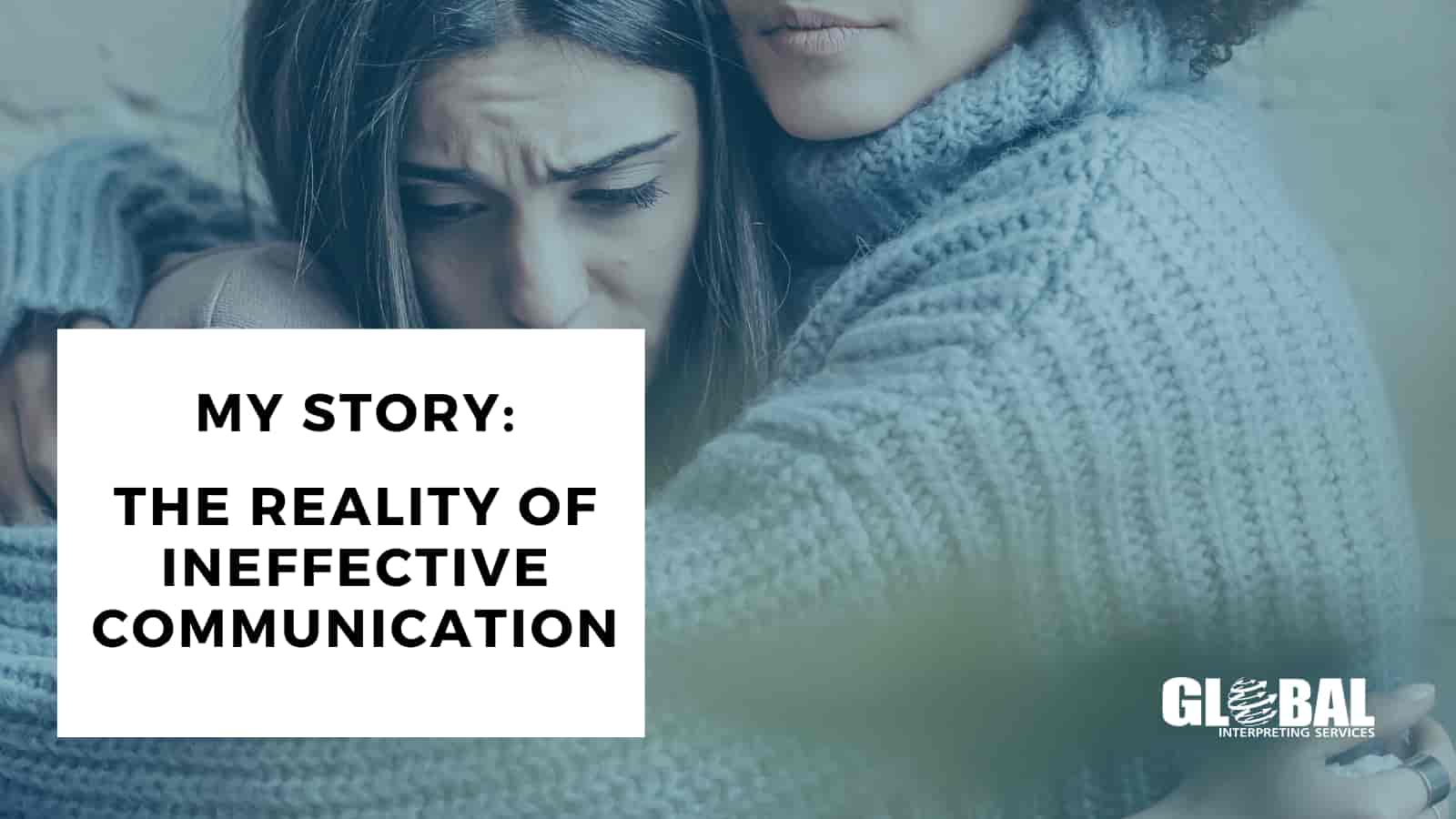I have talked a lot about communication access and accessibility in my blogs. Certainly, in my career, I have done hours and hours of advocating on behalf of others for their right to communication equality.
Here is my personal story.
While it may seem to be about COVID, it’s not.
While there may seem to be family issues, and that may be an issue, it is not.
What I want you to focus on and realize is that human beings were denied the RIGHT to communication because of hearing loss and how it affects us.
My Dad is hard of hearing but by medical terms, he is profoundly deaf. He does not use sign language; he relies on lip-reading to communicate. He can use a phone if the volume is loud enough, the room is quiet, and the person has the right pitch of voice. They must also speak at the right rate of speech and not have an accent. It helps him if he has known you all his life because he knows how you say words or string words together, and so he can use what’s called closure to guess what you are saying, and he is so intelligent that most of the time he gets it correct.
My Dad had back surgery. He was not recovering the way that he should and ended up back in the hospital. He was sent to a Rehabilitation center for in-house physical therapy. At that time, only one person was allowed to visit the hospital. We did not know that they had suspected cancer. They had discussed it directly with him, and possibly the person who was able to visit knew, but the staff never told family members who called them.
Talking to my Dad on the phone was difficult because he could not use the hospital phone as the volume wasn’t loud enough, and sometimes his cell didn’t work in the facility. Additionally, he was on pain medication, so he would fall asleep or the medication made it more difficult for him to concentrate on our speech on the phone.
Now, my Mom was disabled. She had a host of chronic medical issues and my Dad was her caregiver. It just so happened that Mom had been released from the hospital and put into a rehabilitation facility just before Dad was, so we were able to put my parents in the same facility. In fact, their rooms were next door to each other, but because of COVID, they had to quarantine for 2 weeks, but they were together…sort of.
The rehab facility did not allow visitors, at all. Not even vaccinated visitors.
We had to visit through the window. They are next door to each other, and we can walk from window to window. Dad is on the first floor, near a window, his cell phone works sort of, it still has a lot of static and cuts out, but he can see us through a window. This works! Better than the hospital where we couldn’t see him at all.
Well – so we thought. The staff plugged the phone in where he couldn’t reach it and he couldn’t get out of bed. All these connectivity issues, perhaps it’s building structure? Even though Mom was next door she wasn’t allowed to go into his room, or leave hers, because of quarantine. (It was also difficult for her to do so). Dad started to decline and had a hard time with the phone and seeing us in the window and we didn’t know why. We argued with staff about using an accessible wall phone, but they refused.
Dad had a hard time understanding staff because of their masks and he had no one to help him because they did not allow anyone to be with him. They refused to wear clear masks or lower their masks even if he tested negative and they were more than 10 feet away.
I’m not advocating for removing masks in an environment where there is a contagion, but when you have someone who is declining and they cannot understand what you are saying and you refuse to find another way to communicate other than verbally, that’s not right.
We did see a pad of paper where they were perhaps writing to him, but we did not see him wearing his glasses. If they did not give him his glasses, I am unsure if he saw what they wrote.
Watching his decline through the window, we argued with staff to allow our Mom to be allowed to visit with him so she could assess what was going on. Not only was she his wife of 52 years, but she was a retired nurse. She could help communicate with him, especially when a doctor came in, and give him comfort. They would only allow her to sit in the doorway (she had to use a wheelchair, as she had limited ability to walk). She yelled from the doorway and tried to talk with him and they talked a bit. They did talk on the phone but it was getting harder and harder the more his health was declining. After many phone calls and a few threats, we were able to get my Dad transferred back to the hospital. By this time, family members and friends who had not been able to talk to him on the phone were beside themselves as well.
We got the word he will be transferred.
I hadn’t seen my Dad in a couple of weeks because he was in the hospital and then rehab and I was not the designated visitor at the hospital. I was so desperate to see him in person and have him see my face and fully understand me, I parked my car in the parking lot near the front entrance where I had seen ambulances pick up and drop off patients.
I was NOT going to miss this opportunity. I did not know how long he will be in the hospital. I arrived around lunchtime. He was wheeled out around 10 p.m. It’s cold, drizzly, but the ambulance is under an overhang.
I saw them start to come out of the doors and I ran toward the stretcher screaming, “Stop! That’s my Dad! I have to see him! Please!” I reached the stretcher and I could not believe the frail man I saw before me.
At first, he did not recognize me, then realization sets in, and his eyes widen.
“I’m here Dad. I’ve got you. You’re going to get help. I love you.”
He mouthed I love you, too weak to voice it. I told the drivers to get going I didn’t want him to get sick.
I saw him again about 2 weeks later when I found out his diagnosis, but after we had already made arrangements for him and my Mom to go into a Senior Living Complex. Thankfully, we only signed a 30-day trial, and they had all sorts of services that we could access. It gave us a month to get their house ready to bring them home for what would be both their final months.
I lost my Dad on June 29, 2021 and I lost my Mom on July 13, 2021. They loved each other so much they couldn’t be here without each other. As grief-stricken as I have been, that is what has brought me solace. I believe they are together.
What I hope my story helps you see are the places where a hard of hearing person should have had communication, from a first-hand perspective. Where writing back and forth may not have been effective.
How a personal phone doesn’t always work or something they always usually do won’t work and you may have to make exceptions.
Rules may have to be bent in order to be accessible. It’s not treating someone better than another; it’s treating someone equal to another. If that rule isn’t bent or that exception isn’t made, they are not being treated equally because they do not get the same experience or service. It’s not that you are treating them with a special preference or giving them a special benefit to give them a leg up.
What I hope you have gained and feel from my experience is the terrible tragedy of being without communication. I hope you will make the effort to be moved enough to act.
I hope you make your business more accessible so that other families, other daughters, sons, wives, and husbands do not have to despair to communicate with their loved one.
They do not have to lie awake at night wondering if their loved one is able to communicate while lying in a hospital or rehab bed. I hope you are moved to act so that a patient does not have to linger in the desolation of solitude of not understanding what is happening around them, the frustration of trying to communicate with their loved ones, and the gut-wrenching fear of the unknown.




